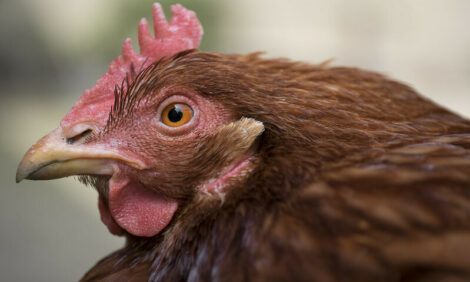



Dacheng Wins Initial Judgment over Lysine to US
GLOBAL - China's largest lysine producer Dacheng Group has won an initial judgment by the United States International Trade Commission (USITC) in a recent patent infringement case.The ruling means Dacheng group can continue exporting lysine to the US, according to an official source in China.
Lysine is an essential amino acid that cannot be synthesized in the body and must be absorbed by nutrition. Commercially it is an important feed additive for swine and poultry. Without enough lysine, pigs and chickens suffer stunted growth, stress, and low meat yield.
Ajinomoto Heartland LLC and Ajinomoto Co Inc, two of six companies affiliated with Ajinomoto Animal Nutrition group, a Japan-based global leader of feed-grade amino acid manufacturer, filed a complaint with the USITC in 2006.
It alleged that the lysine and L-Lysine products of Dacheng group exported to the US infringed two of Ajinmoto's registered patents in the US.
* 'Dacheng's lysine products account for about 30 per cent of the world's lysine market and 70 per cent of the domestic market.' |
|
|
The initial determination was made on July 31, in which Charles E. Bullock, Administrative Law Judge (ALJ) of USITC found that Ajinomoto could not enforce two patents covering the technology for efficiently producing the lysine feed grade because the patent specifications provided by Ajinomoto did not include sufficient details.
According to the US patents law, the patent specification must 'describe' the claimed invention in sufficient detail to 'teach others how to make and use the invention'. If a claim includes devices, compositions, processes that are not described or are not enabled by the specification, the claim is invalid.
Sources from the Ajinomoto web site says the group is 'disappointed' with the decision and has appealed the decision. A final ruling is expected by December 1.
Before 1998, lysine production was monopolized by large foreign enterprises, says Li Weigang, assistant general manager of Dacheng group.
Most lysine in China was imported from the US, Japan and South Korea. The price per ton sometimes averaged about 50,000 yuan (RMB).
"Through our persistent innovations through the years, we have developed our own technology to produce the lysine products, which are very popular in both home and abroad," Mr Li says.
At present, Dacheng's lysine products account for about 30 per cent of the world's lysine market and 70 per cent of the domestic market.
The price decreased to RMB12,000 per ton, which greatly lowers the cost of domestic livestock feed production and boosts the development of the feed industry, he says.
Unlike many Chinese companies in a similar situation, Dacheng group had an active response to Ajinmoto's accusation.
"We hired three lawyers from the US and one from China immediately after we decided to raise a defense. The team was vital to our winning the initial determination," Mr Li explained.
"The legal process took more than two years. This is rare in the history of the USITC, as most investigations are concluded within 12 to 15 months," he added.
Dacheng group has exported about $9 million worth of lysine products to the United States.
"Though the exports to the United States only accounts for small proportion of our annual profits, we see a profitable future in the American market," Wang Dehui, general engineer of the Dacheng Group, says.
Mr Wang also points out that Dacheng group is the first Chinese company to win a case regarding section 337 of the US Tariff Act of 1930.
The bulk of Section 337 cases involve infringements of US patents and trademarks as well as other intellectual property issues.
Statistics from the Ministry of Commerce show that since 1986, 53 investigations under section 337 have been conducted on Chinese products by the USITC, among which 88 percent are concerned with patents and brands.
USITC is the relevant agency that investigates Section 337 violations, and it can issue cease and desist or exclusion orders.
The accused party will lose the right to export the related products to the US if it does not respond to the suit or loses the judgment.
Section 337 investigations have relatively short time terms, but the high expense often keeps some small-scale Chinese companies away and forces them to give up the US market.
Experts say an increasing number of Chinese companies which export goods to the US, such as batteries, wood flooring, writing materials, ink cartridges and chemicals become the defendants of the section 337 inquiries.
"Investigation of section 337 is a long and difficult task," says Liu Limin, vice director of Changchun Intellectual Property Rights Bureau.
"Small Chinese companies should get a better understanding of the section 337 and wield the power of the business association to raise a defense as an active response to the accusation," Mr Liu says.
"Dacheng's victory is a great example for other Chinese companies. It finally shows that how international law can be successfully applied to protect their export business if you can handle it well.
"More people with expertise in IPR and international laws should be welcomed and cultivated in Chinese companies if they intend to export," he added.
And the ruling did teach people a lesson, says Wang Dehui, general engineer of the Dacheng Group, continues the article.
"Not until we were involved in the tough long case, did we realize the importance of patents," he said.
"During the past two years in response to the case, we applied for a large amount of patents to protect our own intellectual property rights.
"What's more, we established a set of strict IPR protection regulations inside our group, and also formed a panel of IPR specialists to strengthen management regarding commercial confidentiality and patents."








